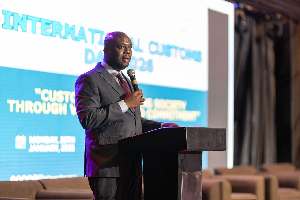People inadvertently hurt others through daily interpersonal interactions. In such situations, sincere apology eliminates any hurt feelings. Unfortunately, some people are of the view that when you apologize, you admit your guilt which is a threat to your ego.
Others also hold the view that admitting your wrong is a sign of weakness that renders a person less powerful. Even though it is in our human nature to protect the ego, justifying our behavior could lead to further complications which affect self-identity. When your actions or inactions cause someone great harm, real emotional distress, or significant inconvenience, there is the need to render sincere apology to garner forgiveness and alleviate the guilt felt. Failing to do so can mare healthy relationships.
During conflict resolution, rendering sincere apology is an indispensable tool that can heal wounds, bind broken hearts and heal relationship stress. As Guy Winch, a psychologist and author of Emotional First Aid, reckons, “An effective apology doesn’t just heal the wound for the other person, it’ll dissolve your guilt too.”
When you apologize, you accept responsibility of your behavior and actions, seeking to make amends with the other person who was offended. Sincere apology open doors to the possibility of forgiveness and reconciliation thereby serving as a deterrent of further repeated mistakes. Eventually, you develop a sense of self-respect and the ability to move on quickly.
The need for sincere apology permeates all human interpersonal relationships including marriage, parenting, dating and career. Without apologies, resentment builds and pushes a person to demand for justice. When people focus on their core values, they seem to become more willing to sincerely apologize. Apology can be a way to reconnect and repair broken relationship by communicating remorse and sympathy.
Apology leads to forgiveness, heals indignity and recover a spoiled relationship. Sincerely apologizing denotes that you have chosen your relationship over your ego thereby restoring trust and understanding to the relationship.
Most parents never apologize to their children when they are wrong because they see it as a sign of weakness. Rendering sincere apology by acknowledging that you are sorry for your actions to your child has a monumental effect on their psychological growth.
Even though it is not part of our culture for adults to admit wrong doing to children even when it’s obvious they are at fault, doing so cements the parent-child relationship and provides the child with a sense of safety and well-being. Parents instills the virtue that it’s okay to be human and therefore imperfect when they apologizes to their children.
Apologizing by admitting a mistake as a leader to your co-workers and employees tend to gain credibility and generate confidence in one’s leadership. Acting defensively, on the other hand, undermines it. Nevertheless, in the workplace, some leaders never apologize to their subordinates because they feel they are superior to them.
They hold the assertion that doing so will cause them to lose their authority and power. One of the common mistake is attempting to maintain an aura of perfection as a leader. Apologizing to your subordinates is a sign of respect to the overall relation. We should lead by example and teach that everybody makes mistake. I must emphasize that courageous leaders don’t make mere excuses when they err but rather apologize. It is not easy for a leader to admit an error committed, or to acknowledge that something that he has done has actually caused harm to his subordinates. When a leader sincerely apologizes, it means that he/she has put honesty and honour above personal comfort.
The first essential language of apology is expressing regret of your actions. Most commonly, it is expressed in the words "I am sorry." It involves expressing to the offended person your own sense of guilt and pain that your behavior has hurt him/her deeply. Richelle Goodrich posits that “saying I’m sorry is saying I love you with a wounded heart in one hand and smothered pride in the other.”
Expressing regret is fundamental to good relationships. Apology is birthed in the womb of regret. We regret the pain we have caused, the disappointment, the inconvenience, and the betrayal of trust. Regret focuses on what you did or failed to do and how it affected the other person. Without the expression of regret, people that you have offended do not sense that the apology is adequate or sincere. For some individuals, receiving sincere expression of regret is the strongest language of apology.
Apology cannot change what has been done, but it can help to ease tension and relieve stress. When expressing sincere apology, choose the timing carefully and take responsibility of your actions. Try as much as possible not to equivocate. Thus once you express regret about your action or words, don’t water it down with excuses. Trying to justify your actions will diminish the power of your apology and hurt your credibility.
Also, check the tone and delivery of your apology because they are as important as the message itself.
Genuine forgiveness removes the barrier that was created by the offense and opens the door to restoring trust over time. If the relationship was warm and intimate before the offense, it can become loving again. If the relationship was simply one of casual acquaintance, it may grow to a deeper level through the dynamic process of forgiveness.
In conclusion, since apologies reduce retaliation, bring about forgiveness, aid in the repair of broken trust and have the physiological effect of lowering blood pressure more quickly, it behooves on us to sincerely apologize when erred.
Opinions of Monday, 27 July 2020
Columnist: Samuel Danso















